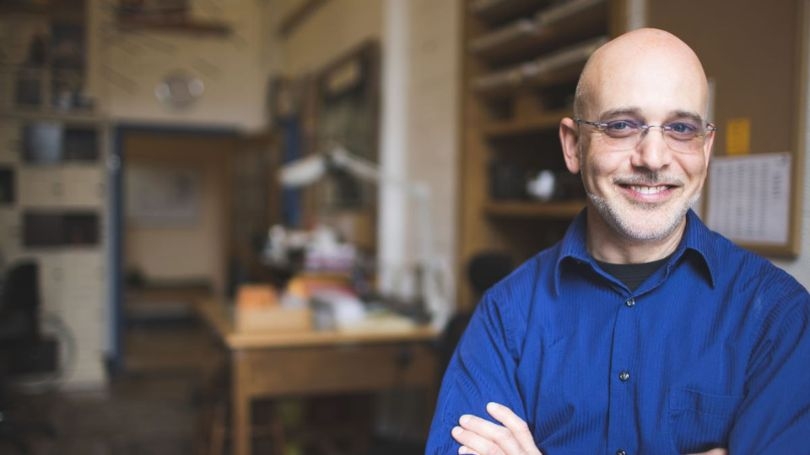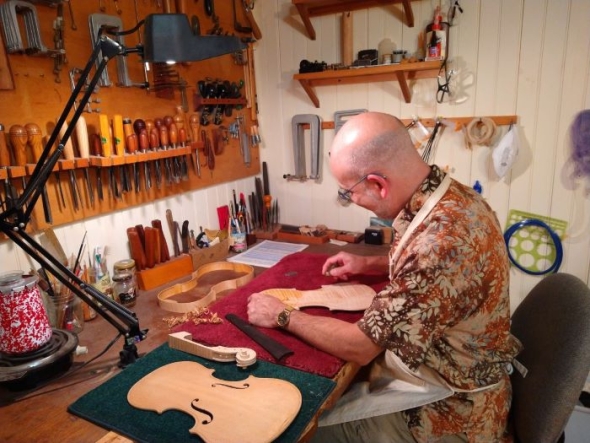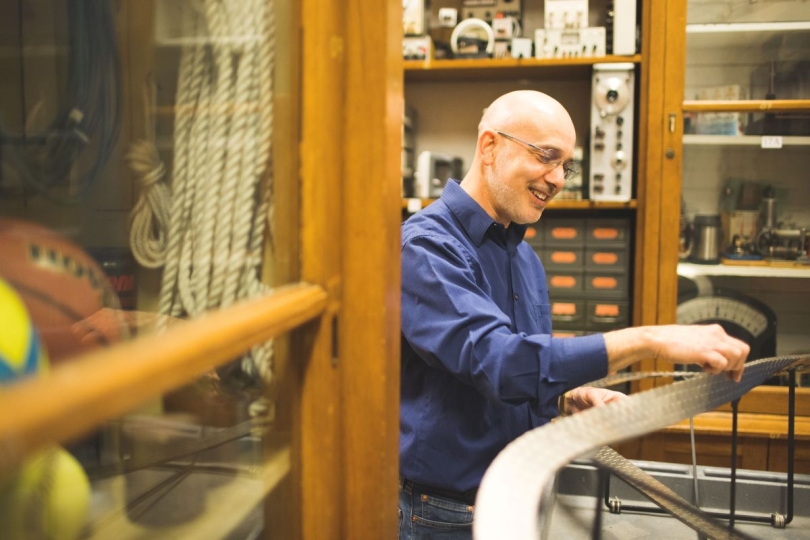

A member of the physics and astronomy department for more than 17 years, Goldblatt also makes and restores violins.
Alan Goldblatt has always enjoyed trying to figure out how things work.
"Even when I was 3 years old, family members would give me things to take apart, tinker with, and sometimes fix," he says. "The parents of my elementary school friends would keep lists of things for me to repair when I came for a visit."
After graduating from college, Goldblatt trained to become a luthier. He ran his own business for many years making, repairing, and restoring violins.
"What I find most rewarding about being a luthier is after I do repairs or adjustments on someone's instrument and I later get a phone call from them telling me how much they're enjoying playing their instrument—that makes it all worth it," he says. "And, just the process of working with wood, sculpting the shapes, and creating something beautiful."

Soon after his children were born, Goldblatt sought a more reliable source of income and joined Dartmouth as a lab technician in the Physics and Astronomy department, while continuing his Goldblatt's Sculptwright Shop on the side.
"When I found the lab tech position, it seemed perfect," he says. "I have a background in physics, it utilized many of my abilities, and it got me back into academia, which I hadn't realized how much I missed."
Goldblatt's role has evolved over the last 17 years. After starting as a lab technician, he moved into the lab manager position, and now serves as the manager of academic support. On a typical day, he prepares and sets up demos for classes, mentors the new lab manager and lab tech, and coordinates activities in the building.
"I also teach undergraduate students how to construct circuit boards and other components for our space research projects, and provide technical support to whomever has a need," he says.
Goldblatt also collaborates with faculty to make undergraduate physics labs engaging. For example, instead of having students recreate a breakthrough experiment from the past and get the anticipated results, he develops non-intuitive questions. When students conduct lab experiments and don't get the results they anticipate, they learn to analyze the results and think creatively.

"Alan is at the heart of so much we do in physics and astronomy," says professor Ryan Hickox. "He brings a creative spark to our labs and classrooms that catalyzes the process of learning and discovery."
"I work with a wonderful group of people who make work enjoyable, help each other out, and who are remarkably good at letting me know that I'm appreciated," Goldblatt says. "It's a joy to work with them all."
Goldblatt is also helping to upgrade the department's public astronomy sessions.
"We have a rich history of astronomy here at Dartmouth, with Shattuck Observatory being the first scientific building on campus and one of the first in the country," he says. "We are planning restoration work for the observatory and the telescope it houses, to bring it back to something beautiful for public viewing."
Goldblatt loves the variety inherent in his position. His off-hours activities are just as varied. He plays the fiddle, guitar, and bouzouki (a long-necked instrument popular in Greece); dances (mostly West coast swing); telemark skis; bikes; plays ultimate frisbee; and does some circus arts.
"Several years ago, a camp my kids had attended at Circus Smircus introduced a session for adults," he says. "I leapt at the change and signed up. My favorite activity is the static trapeze."